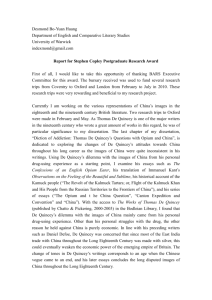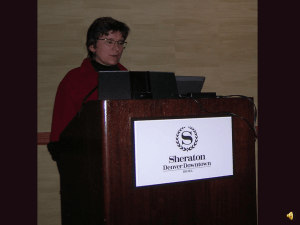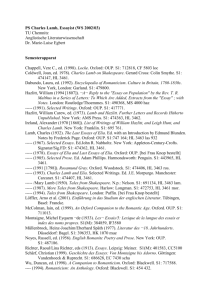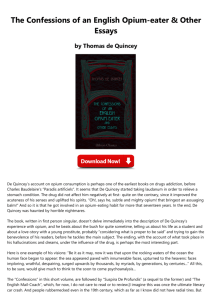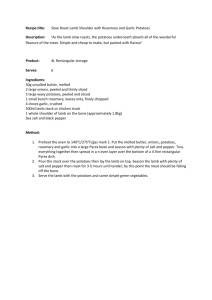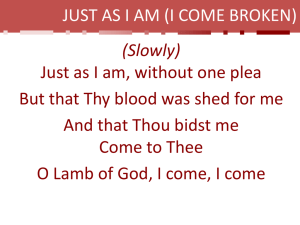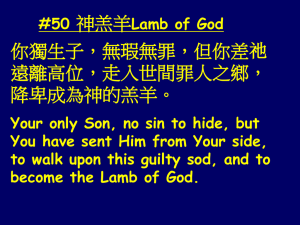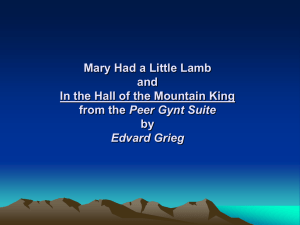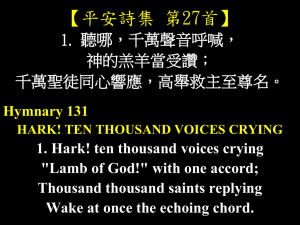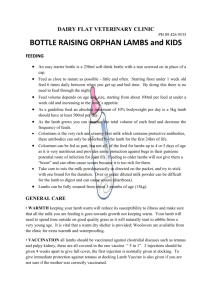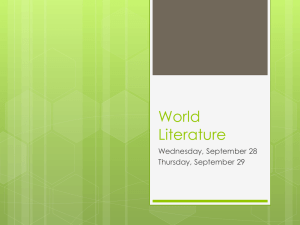Document
advertisement
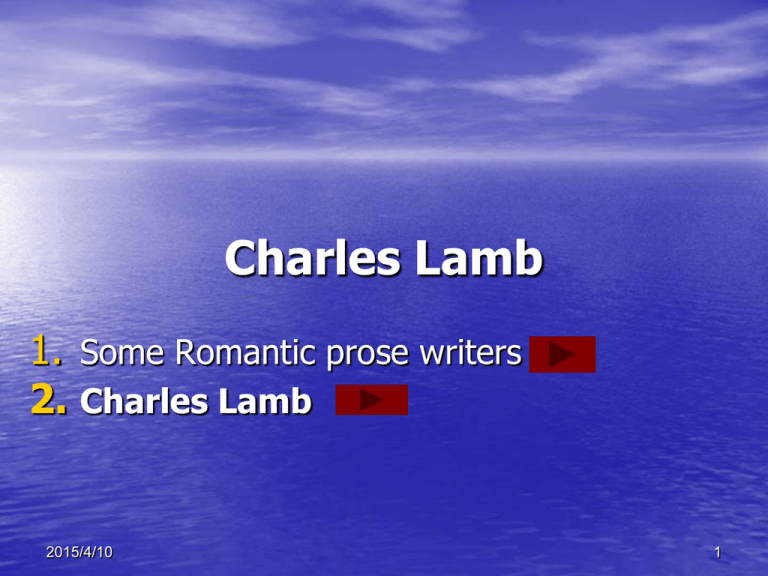
Charles Lamb 1. Some Romantic prose writers 2. Charles Lamb 2015/4/10 1 the Romantic prose writers • William Hazlitt • Thomas De Quincey 2015/4/10 2 William Hazlitt a literary critic two major works of criticism Lectures on the English Poets The English Comic Writers Less didactic than his 18th-century counterparts 2015/4/10 3 William Hazlitt • • He had a passionate interest in literature but was not above allowing his radical political convictions and personal bias to color his criticism. What he enjoyed, he wrote about with enthusiasm and directness; what he disliked, he condemned. He states that the essays are an attempt “to recollect all I have ever observed or thought upon a subject and to express it as nearly as I can.” 2015/4/10 4 Thomas De Quincey Confessions of an English Opium Eater a powerful and imaginative book His subjects are taken from personal experience, politics, history, and literature. 2015/4/10 5 Thomas De Quincey De Quincey advocated “impassioned prose,” elaborate and musical. Attempting to penetrate beneath the surface of things, he advocated a style which would extend the range of prose into the realm of poetry. The display of great learning, the sprinkling of classical allusions, the seemingly illogical digressions can, at times, make his writing ponderous and weighty. 2015/4/10 6 Charles Lamb He gives his own acute and wry observations in graceful, flowing sentences which meander with the charm of fine conversation, the result of a subtle craftsmanship characterized by urbanity and good taste. 2015/4/10 7 Charles Lamb nostalgic and wistful in Dream Children lively and humorous in A Dissertation Upon Roast Pig a gentle person, sympathetic to mankind, but amused by the contradiction and follies of people, including himself 2015/4/10 8 • • • Essays of Elia Under the mask of Elia, Lamb indulges in the most characteristic of Romantic tendencies — personal memoirs, reminiscences of past life. Time and again in the essays Lamb returns to the world of childhood, weaving autobiographical details and fanciful imaginings into a reality of its own. He is more concerned with creating a mood and with evoking a response. To do this he uses the rambling, ornate style more typical of the seventeen century than of his own age. His is a style not often imitated well. However, his wry observations of London and his cherished recollections of past days are models for the personal essay. 2015/4/10 9 Charles Lamb 2015/4/10 Dream Children: a Reverie 10
